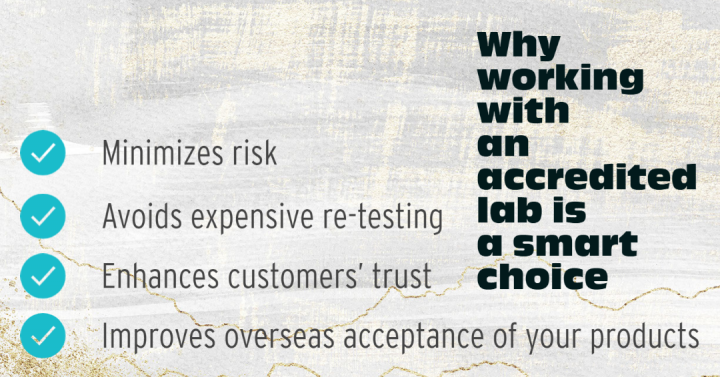Accreditation is a tool to facilitate the free circulation of goods and services and to ensure the safety of consumers.
It is an attestation granted by a third party related to a body for conformity assessment, such as a laboratory, an inspection or a certification body.
This certificate is granted by an accreditation body after a thorough assessment based on internationally recognized requirements; it conveys the formal demonstration of the competence of the organization to carry out specific tasks relating to conformity assessment.
Laboratories, inspection and certification bodies may, through accreditation, provide evidence of their technical abilities, but also of their independence and impartiality.

The importance of accreditation
- For businesses, accurate calibration, measurement and testing, inspection and certification, performed in accordance with best practice, can limit errors and product failure, control production costs and contribute to an innovative environment. Accreditation is therefore an essential tool for decision making, risk management and supplier selection. It can also provide a competitive advantage in domestic markets through access to public sector contracts, and also overseas with greater acceptance in export markets.
- For regulators, accreditation is the preferred mechanism for identifying competent bodies to implement government policies and regulations aimed at safeguarding the public and building public confidence in activities that have an impact on certain fields, such as health, welfare, security, the environment, education and financial services.
- For consumers, accreditation helps to increase access to goods and services of reliable quality and safety





